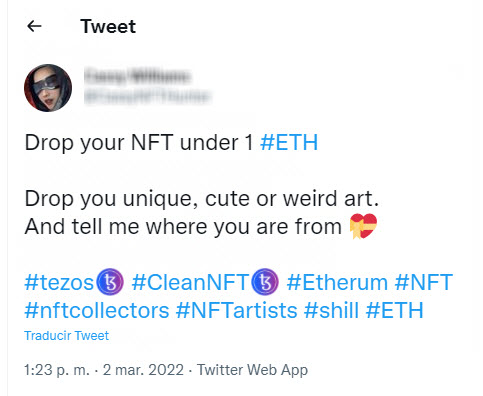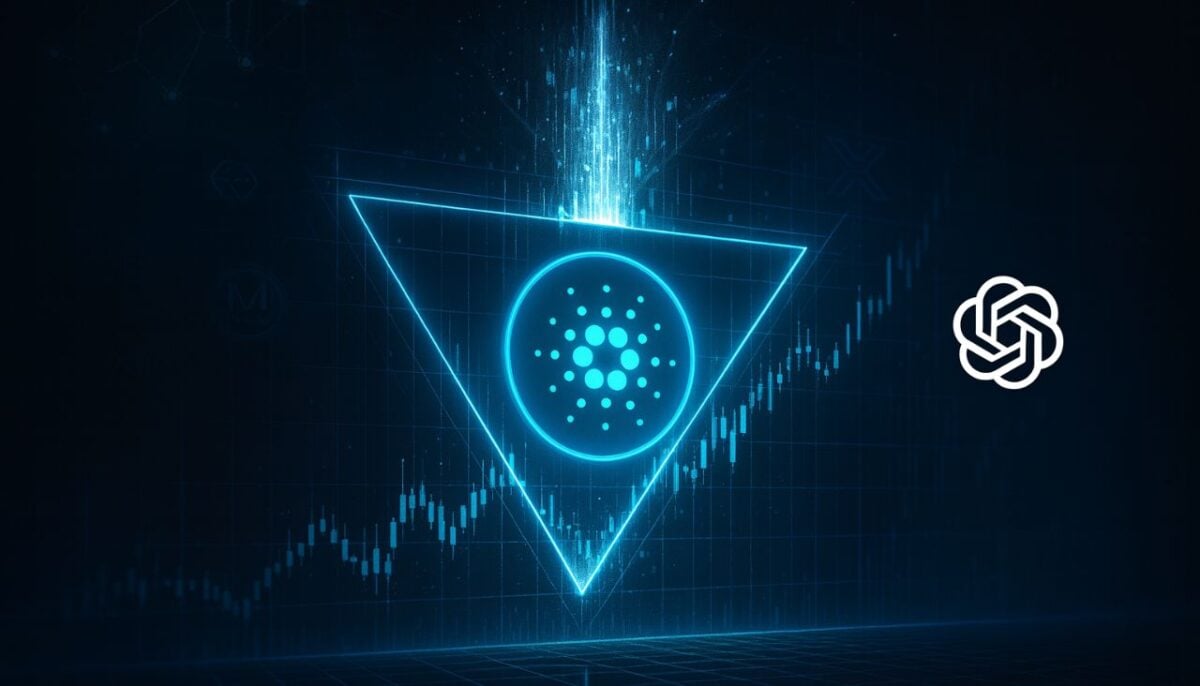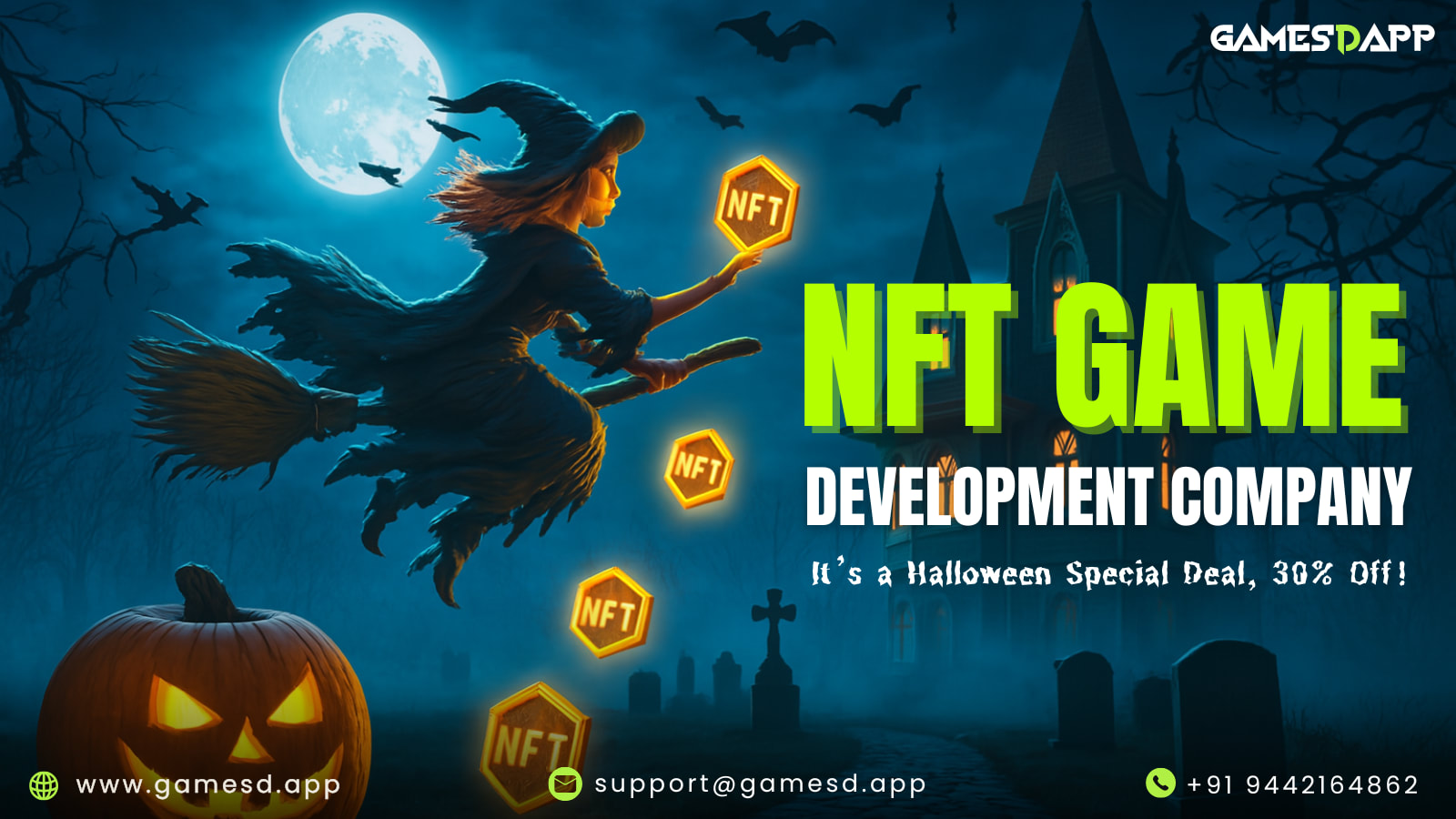Looking back to 2012, colored coins were the first hint of what we now call non-fungible tokens (NFTs), or nifties to some. Ten years later, these blockchain-based assets that can represent almost anything are on everyone’s lips, especially in the worlds of art, sports and video games.
The NFT market began to pick up steam in 2020, having grown over 300% from the previous year and moving millions of dollars of cryptocurrency. However, by the first week of May 2022, the sale of these tokens had fallen by 92% to 19,000 from its peak of 225,000 last September. The number of active wallets fell by about 88% to about 14,000 from 119,000 in November.
Despite this, the market still drives thousands to millions of dollars worth of cryptocurrencies, providing many opportunities for scammers and raising many concerns about the security of this asset. To steal a piece of art, a thief would previously have to go through several barriers and cameras inside a museum; now a digital wallet can be cracked open using malware or social engineering techniques.
When digital artist Qing Han died in 2020, scammers took advantage of the moment to sell her artwork as NFTs on her behalf. Last September, famous graffiti artist Banksy hacked his website, advertising for the sale of what was supposed to be his first NFT; a collector paid $336,000.
The lack of regulation of the NFT market makes it a place of opportunity for all kinds of scams. Several companies, such as Adobe, are trying to create authentication stamps that will make it easier to verify the legitimacy of a token. Despite some anti-fraud barriers, it is a fast-paced space that is highly dependent on user behavior.
Here are some common scams involving NFTs that you should be aware of and how you can avoid falling victim.
Direct messages on Discord
Discord holds quite a bit of allure for cybercriminals and there are different ways to defraud users. The platform is divided into communities called servers where people can talk, stream and play games together.
Last December alone, 373 members of a Discord server run by the recently launched NFT gaming marketplace, Fractal, saw their digital wallet verification compromised and lost a total of $150,000 worth of Solana.
Other ways to get scammed on Discord involve sending direct messages (DMs) that trick users into believing they’re actually being contacted by a brand, artist, or influencer. Essentially, the larger a Discord network, the greater the chances of receiving scam messages. You should be careful about clicking on links sent by strangers or answering any requests for money. In the same way, don’t get caught out by new NFT opportunities or projects without making sure the offer is legitimate.
Fake profiles on social media
Fake social media profiles that want to attract NFT creators
Social media users, whether on Twitter or any other social media platform, must be constantly aware of potential fake profiles. Often these are copies of real profiles, and a little attention to detail can be enough to tell them apart – sometimes one letter is all it takes to give you away to a scammer.
At the same time, bots prompting users to respond to messages or tech support scammers use social media to communicate with users and request information that can give them access to cryptowallets. While the bad actors may not always succeed, a small percentage of users who are defrauded can mean big payouts.
Additionally, cybercriminals can try to reach users by sending messages where they act like they want to chat or seek advice. Some red flags can help detect a fraud, including the number of followers, the number of tweets and retweets, or whether the account lacks original content.
Phishing fraud
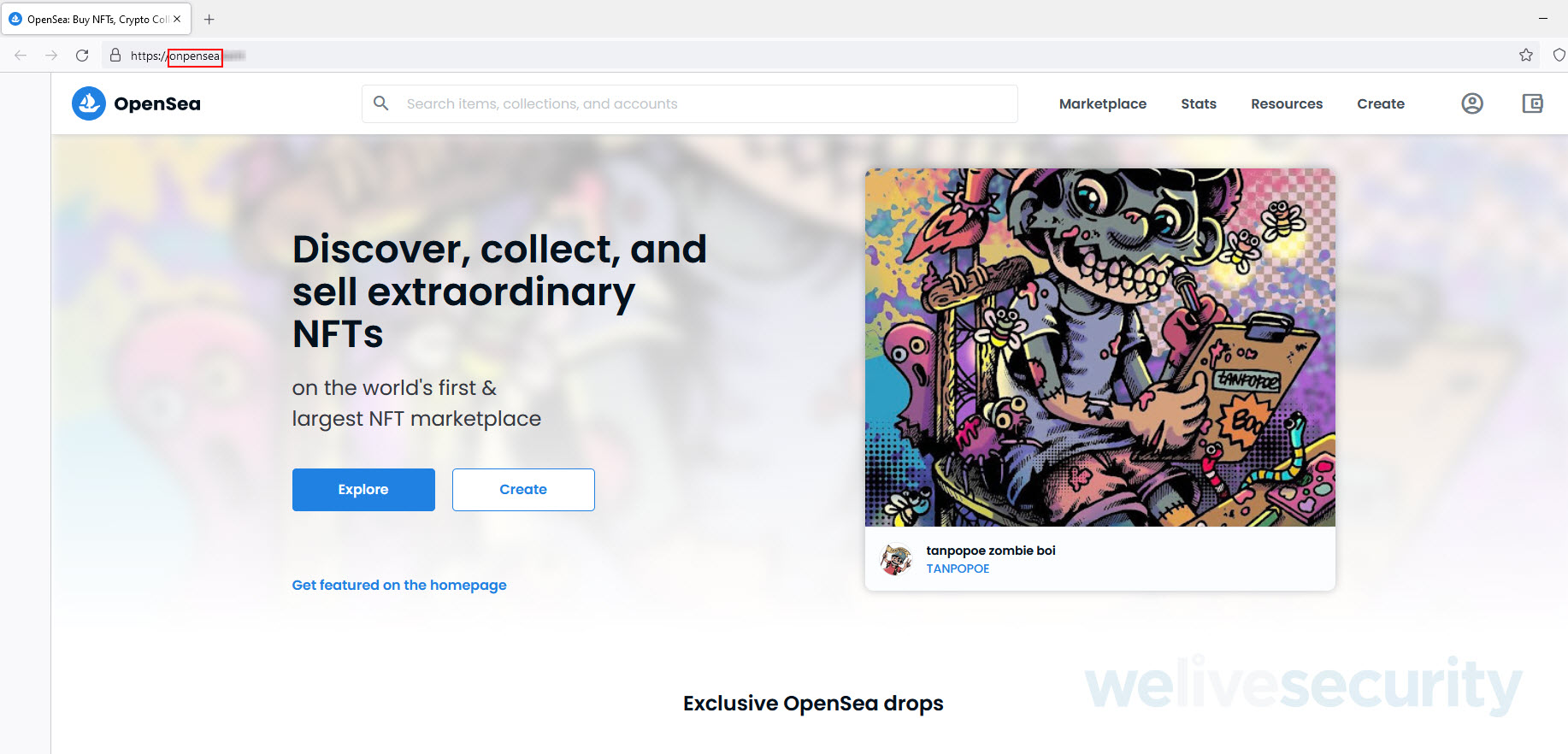
Website that mimics the OpenSea NFT market
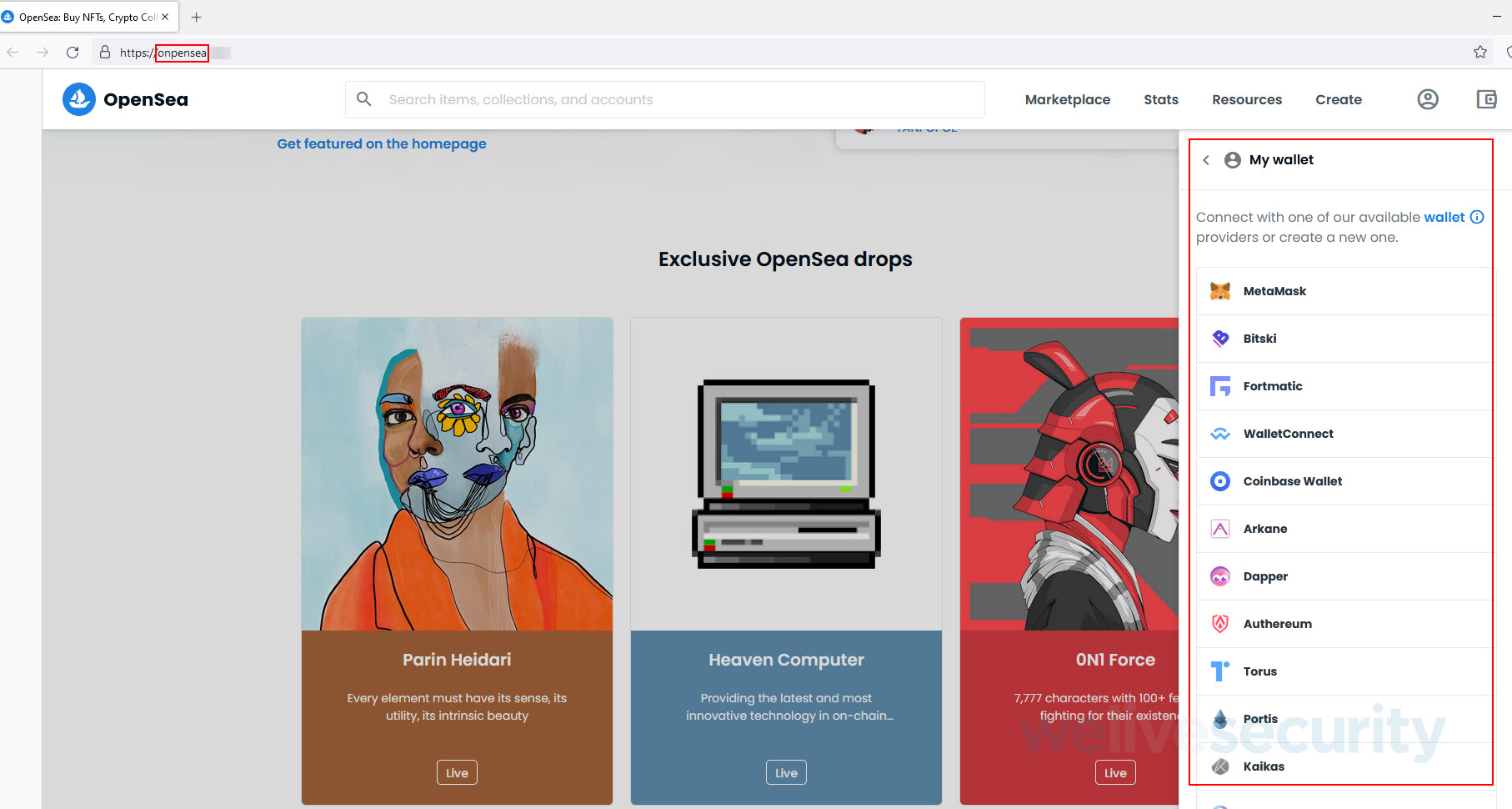
Fake site hunting NFT wallets
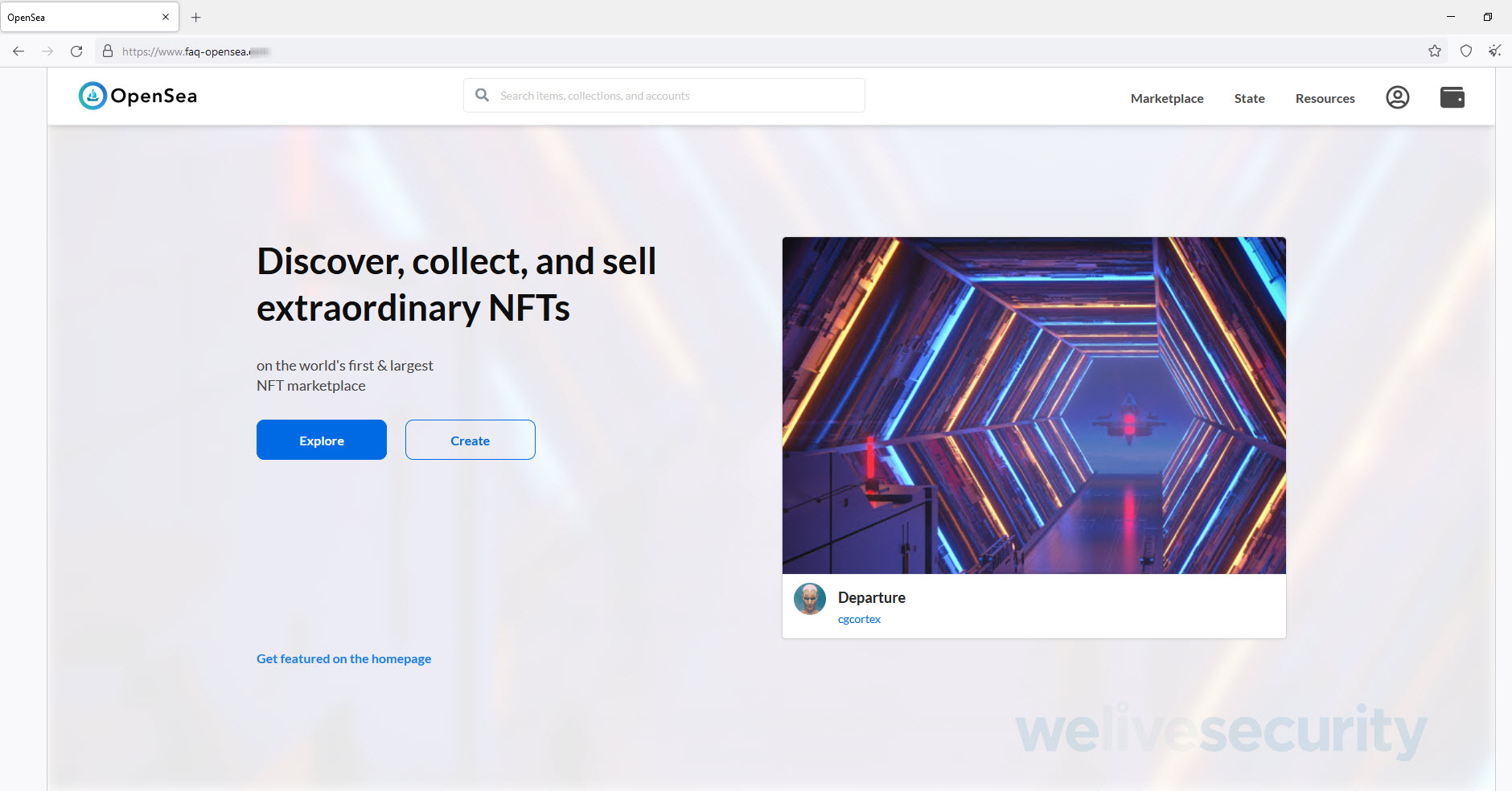
Another fake website posing as OpenSea
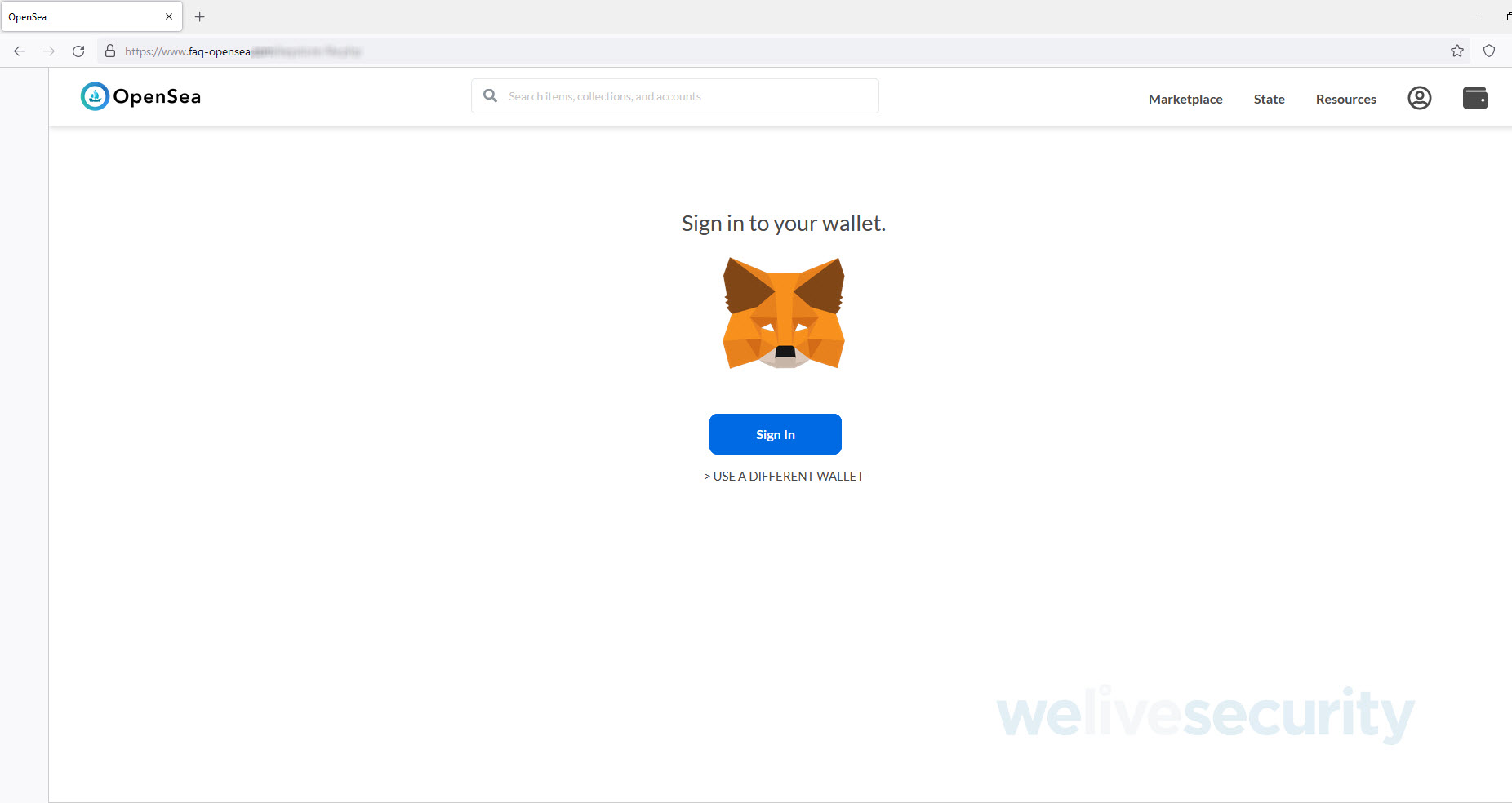
Another attempt to target a crypto wallet
Another common tactic is to copy websites and apps from perfectly legitimate brands. Replicas of NFT marketplaces or fake cryptowallets are shared on Discord, Twitter and forums, as well as via email. The level of similarity to the real companies is impressive, and it takes a keen eye to spot small differences in the URL or general layout.
For this reason, it is always essential to check the URL of a link before clicking, especially when websites require personal information. We should always remember the golden rule and never give out seed phrases or passwords to anyone outside of our NFT wallets.
Once you have confirmed that the site is genuine, the next step is to confirm the veracity of an NFT. Check the background of the seller and previous sales, but also check that the NFT is original and not sold in other markets, especially when buying expensive cryptocurrency in high demand. Speaking of expensive, suspiciously low prices should always raise eyebrows, as scammers tend to sell copies cheaply.
Artist imitation
In addition to Banksy and his fraudulent website story, other artists have been through similar situations. Tyler Hobbs, the artist behind the Art Blocks project “Fidenza”, denounced the platform SolBlocks for using his code to sell replicas of his works. The artwork of Derek Laufman was also sold through a fake account with the artist’s name, even with a verified icon.
The list of similar scams is long, prompting artists to take action by commenting, checking and denouncing fake profiles for the unauthorized sale of their art.
Pump and dump scams
Closest to NFT speculation, this type of scam involves a person or group of individuals buying a large number of NFTs (or cryptocurrency) and selling them back to themselves to artificially create a false sense that the asset is in high demand . In this way, market forces will increase the resale profits.
On the buyer’s side, this scheme seems to be validated by influencers sharing the NFT on their profiles, making it look like a great opportunity. Ultimately, these buyers expect to resell at a higher price, which never happens, as the scammers clean up their tracks after getting their money.
Back pulling scams
A typical crypto scam inherited by the NFT market. Retractions were quite common and took advantage of its most important feature: when the scam is revealed, it is generally too late.
Like pump-and-dump scams, the scammers will hype up a project, ask for investment and abandon it without notice. This usually happens once they believe they have fully drained ‘the investors’, withdraw all funds from an NFT wallet and remove their profiles from marketplaces and social media.
One of the most famous cases dates back to “Squid Game” and the cryptocurrency inspired by the TV show Squid. This token rose in value to $2,800 within a few weeks when it suddenly disappeared. All his social media accounts and his website disappeared without a trace. In the meantime, the scammers reportedly stole $3.3 million.
Offer scams
Fake bids in NFT auctions are one of the most common scams. This occurs when a real seller tries to auction an NFT. The seller indicates the cryptocurrency they want to be paid in, but a scammer can manage to change the currency of their offer to one with a lower value.
Another way this can work is by adding and removing an NFT listing from a market, moving the decimal one number to the right. Without noticing the change, a buyer may end up paying much more than the amount they were initially looking at. Just like in real life, checking the price before paying is a must.
Social media account hijacking
Fake offers and giveaways are a great way to pique users’ interest (not only) on social media. Surprisingly, they can even come from well-established user accounts. However, the reality is that these accounts have been hijacked often enough by scammers to promote fraudulent schemes.
Once users try to access the fake offer, they are prompted to enter their passwords or personal information, give away their details and get nothing in return.
Fake mints
In these schemes, fraudsters drop NFTs into the wallets of influencers, making it appear as if the celebrities have minted the NFTs on the blockchain. This is because many buyers monitor specific wallets for new activity to anticipate mass interest and an increase in the value of an NFT.
These scams involve elements of most of the techniques mentioned earlier, including artist impersonation to pump-and-dump fraud. According to OpenSea, the largest NFT marketplace, more than 80% of NFTs created for free on its platform were fake, plagiarized from other artists or spam.
NFT safety tips
There are many scams to be aware of when diving into the NFT world and as usual scammers never miss a golden money making opportunity. So it’s important to always be observant – a healthy dose of skepticism will save you a few headaches down the road.
Here are some quick tips on how to stay safe while using NFTs:
Never share your private key or seed phrase with anyone. Use strong and unique passwords along with multi-factor authentication whenever available. Always make sure the DM you received is correct. Never click on a link that promises free items or requires you to respond quickly. And if you’re tempted to do that, check the origin of the link first. This is even more true on Discord. Keep your tokens in a cold-storage hardware wallet, rather than in a software (aka ‘hot’) wallet.
Disclaimer for Uncirculars, with a Touch of Personality:
While we love diving into the exciting world of crypto here at Uncirculars, remember that this post, and all our content, is purely for your information and exploration. Think of it as your crypto compass, pointing you in the right direction to do your own research and make informed decisions.
No legal, tax, investment, or financial advice should be inferred from these pixels. We’re not fortune tellers or stockbrokers, just passionate crypto enthusiasts sharing our knowledge.
And just like that rollercoaster ride in your favorite DeFi protocol, past performance isn’t a guarantee of future thrills. The value of crypto assets can be as unpredictable as a moon landing, so buckle up and do your due diligence before taking the plunge.
Ultimately, any crypto adventure you embark on is yours alone. We’re just happy to be your crypto companion, cheering you on from the sidelines (and maybe sharing some snacks along the way). So research, explore, and remember, with a little knowledge and a lot of curiosity, you can navigate the crypto cosmos like a pro!
UnCirculars – Cutting through the noise, delivering unbiased crypto news

